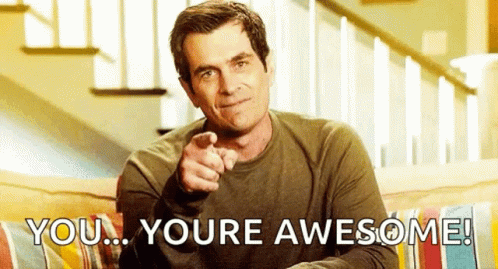5 Things You Should Never Say to Someone With ADHD (And What You Should Say Instead!)

FRIENDLY DISCLAIMER: This article was not created to attack the audience, anyone diagnosed with ADHD, or anyone who may display these symptoms. It was created to bring more awareness to the topic. The tips in this article are meant for general guidance and may not apply to every situation. It is researched and inferred from sources and studies referenced down below. Hope you learn a lot!
Hey, Psych2goers! It’s nice to see you again.
Have you ever met a person who is diagnosed with ADHD?
Are they your family, friend, partner, or acquaintance?
ADHD, also known as Attention-Deficit Hyperactivity Disorder, is a neurobiological condition that causes distractibility, hyperactivity, and impulsivity symptoms.
If you know someone with ADHD, it’s always important to choose your words when communicating with them especially when you don’t have much knowledge of the disorder. That way, you can avoid making remarks that may come off as invalidating or discriminatory.
You probably just want the best for them, so without further ado, here are 5 things you should never say to someone with ADHD. Read until the end to learn what to say instead!
1. “Are you SURE it’s ADHD?”

If they’re already diagnosed with it, there’s probably no point in questioning them frequently for confirmation.
Constant interrogation may irritate and make them feel like you’re dismissing or minimizing their condition. It can also come off as rude even if you’re asking it with good intentions.
A lot of people doubt an ADHD diagnosis. That’s probably why you may get the urge to question it, too.
Some may say “Oh, it’s just children being children.” or “They’ve always been clumsy and inattentive! It’s just their personality.” which isn’t necessarily true.
Before a child is diagnosed with ADHD, they undergo a full physical exam, vision and hearing test, as well as a noninvasive scan called the Neuropsychiatric EEG-Based Assessment Aid (NEBA) System to measure theta and brain waves.
Diagnosis for adults is trickier, but it’s possible to get an accurate one after their health care professional reviews their history, family interviews, and physical, neurological, and psychological tests.
2. “It’s probably because of how you were raised.”

Did you know that ADHD is a genetic condition?
According to Griffin, for any child with ADHD, there’s a 30% to 40% chance that one of the parents has it, too.
It means that ADHD isn’t a condition brought about by parenting styles.
ADHD can be challenging for both parents and children. Parents whose children have the condition likely doubt and question themselves if they’re raising them the “right way”. The children, in addition, face higher chances of being bullied, rejected, and having a lower quality of life.
Furthermore, saying that someone’s ADHD is caused by their childhood upbringing can deeply hurt those who tried their best to raise them.
3. “You just need to have self-control.”

Telling a person with ADHD to have more self-control is like telling someone with alcoholism to stop drinking.
It’s not useful and it can also come off as insensitive.
People with ADHD tend to be inconsistent because of their symptoms.
They could perform a task smoothly and face immense difficulty doing it again the next day. It doesn’t mean they had less self-control – they probably had to put even more focus and effort to get the job done.
4. “I relate to you so much!”

If you don’t have the condition yourself, you probably can’t.
It’s possible to understand and imagine what they’re going through by listening to them and educating yourself. However, saying that you can relate to them may make it seem like you’re downplaying their condition.
Most of the time, you probably say this because you can relate to their symptoms of forgetfulness, distractibility, hyperactivity, or/and inattention.
That’s why it helps to understand that this is a misconception. Not everyone who shares these characteristics has ADHD, especially since people with the real condition face symptoms that are far more intense and recurring to the point where it greatly affects their own lives and relationships.
But if you do share the same symptoms and it’s starting to affect your way of living, please visit a health care professional to get an accurate diagnosis. Getting help is highly important.
5. “Isn’t that just all in your head?”

Saying this can make it seem like you’re questioning the validity of their disorder.
It can make you appear dismissive and it can also considerably impact their emotions and self-esteem negatively.
ADHD is a neurodevelopmental disorder but it doesn’t mean that the condition is “all in their head”. According to Cronkleton, ADHD causes differences in brain structure, function, and development.
People with ADHD may also have areas of the brain that mature more slowly than normal ones.
Now that we’ve covered what you should try to avoid saying, here are things you could say instead!
WHAT TO SAY INSTEAD
✨ “I’ve never experienced what you’re going through, but I understand your pain.”

Instead of saying that you can relate to them, try putting more focus on their struggle. That way, you’re not minimizing their condition but giving them a shoulder to lean on. How many jobs have they lost because of their disorder? How many relationships have been broken? Of course, your feelings also matter, so if you want to express something to them, try choosing words that won’t make them feel bad about their condition.
✨ “I’m here to listen.”

Do they want to talk about something? They will most likely appreciate the time you provide especially when they’ve just gone through a rough experience and need to let it out. Don’t be afraid to ask questions and try not to interrupt them as they’re talking.
✨ “Your struggles are valid.”

Plenty of people are still uneducated about the topic of ADHD. If you know someone with the condition, they’ve probably gone through a lot of accusations, misconceptions, and discriminatory or dismissive remarks. It can get pretty tough since it can lower their self-esteem and make them question their sense of self. That’s why it’s good to reassure them now and then by saying that what they’re going through is completely valid.
✨ “I like you just the way you are.”

Since ADHD currently has no cure, they may be stuck with a feeling of hopelessness. Saying that you love and appreciate everything about them will go a long way.
✨ “You rock!”

Did you know that Michael Phelps, Adam Levine, and Paris Hilton have ADHD?
ADHD shouldn’t be a hindrance to living life to the fullest, so be sure to let them know that they’re amazing and that their condition isn’t stopping them from doing great things and going full Percy Jackson mode.
To everyone with ADHD: You rock!
SHARE YOUR THOUGHTS
What did you think about this article?
Have you ever said any of these to someone with ADHD?
If you have any topic suggestions or want a part 2 to this, please comment down below!
Also, if you know people who can resonate with this article, please don’t hesitate to share it with them!
As usual, the references and studies used are in the description box below.
Thank you so much, Psych2goers! See you next time.
YOU CAN ALSO WATCH
READ MORE
REFERENCES
ADDitude Editors, Batan, B., PhD, Copper, J., PCAC, PCC, MBA, & Pal, R. (2022, April 14). How to Respond When a Loved One Is Diagnosed with ADHD. ADDitude. Retrieved June 13, 2022, from https://www.additudemag.com/slideshows/diagnosed-with-adhd-how-to-respond-positively/#:%7E:text=Don’t%20say%2C%20%22I,too.%22%20%2DAnni%20L.
Centers for Disease Control and Prevention. (2020, November 16). Data and Statistics About ADHD | CDC. Retrieved June 13, 2022, from https://www.cdc.gov/ncbddd/adhd/data.html#:%7E:text=Millions%20of%20US%20children%20have,children%20aged%206%E2%80%9311%20years
Griffin, R. (2008a, September 9). When You and Your Child Have ADHD. WebMD. Retrieved June 13, 2022, from https://www.webmd.com/add-adhd/childhood-adhd/features/sharing-diagnosis-when-you-your-child-have-adhd#:%7E:text=You%20very%20well%20might.,until%20their%20children%20get%20diagnosed.
Griffin, R. (2008b, September 9). When You and Your Child Have ADHD. WebMD. Retrieved June 13, 2022, from https://www.webmd.com/add-adhd/childhood-adhd/features/sharing-diagnosis-when-you-your-child-have-adhd#:%7E:text=You%20very%20well%20might.,until%20their%20children%20get%20diagnosed.
Holland, K. (2020, March 25). 9 Celebrities with ADHD. Healthline. Retrieved June 13, 2022, from https://www.healthline.com/health/adhd/celebrities
Lasky, S., M. A. ,. BCC, SCAC. (2022, January 27). Why ADHD Self-Awareness is the Key to Effective Action, Change, and Progress for Each of Us. ADDitude. Retrieved June 13, 2022, from https://www.additudemag.com/self-awareness-adhd-brain-power-productivity/#:%7E:text=%231.&text=Without%20self%2Dawareness%2C%20you%20risk,compensate%20for%20your%20ADHD%20challenges.
Low, K. (2021, September 27). How Not to Treat Someone Diagnosed With ADHD. Verywell Mind. Retrieved June 13, 2022, from https://www.verywellmind.com/what-is-adhd-correcting-myths-about-adhd-20456
Low, K. (2022, March 9). What Causes ADHD? Verywell Mind. Retrieved June 13, 2022, from https://www.verywellmind.com/what-causes-adhd-20465
WebMD. (2004, July 1). Diagnosing ADHD in Children and Adults. Retrieved June 13, 2022, from https://www.webmd.com/add-adhd/childhood-adhd/diagnosing-adhd
WebMD. (2020). Beyond Inattention: How ADHD May Be Affecting Your Life. Retrieved June 13, 2022, from https://www.webmd.com/add-adhd/ss/slideshow-adhd-life
Williams, S. (2017, September 20). Percy Jackson: My boy’s own adventure. The Guardian. Retrieved June 13, 2022, from https://www.theguardian.com/lifeandstyle/2010/feb/08/percy-jackson-rick-riordan#:%7E:text=But%20Percy%20is%20an%20unlikely,whom%20the%20character%20was%20based.



Thanks so much. My family is a marker of what not to say or do to someone with adhd, so it was really nice to read the second part and pretend someone was saying it to me. Appreciate you.
Hello, Melanje! 💛 Thank you so much for sharing a part of your story. It’s never easy, and that’s what makes you stronger. Always remember that you are worth it, you are valid, and you deserve all the love and support you need.